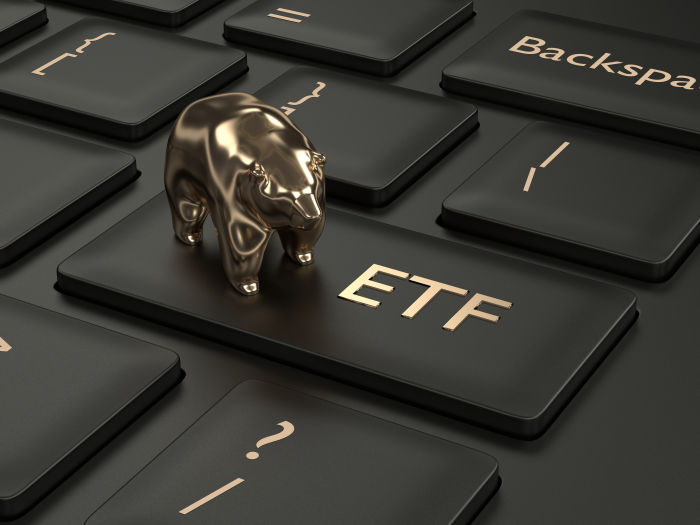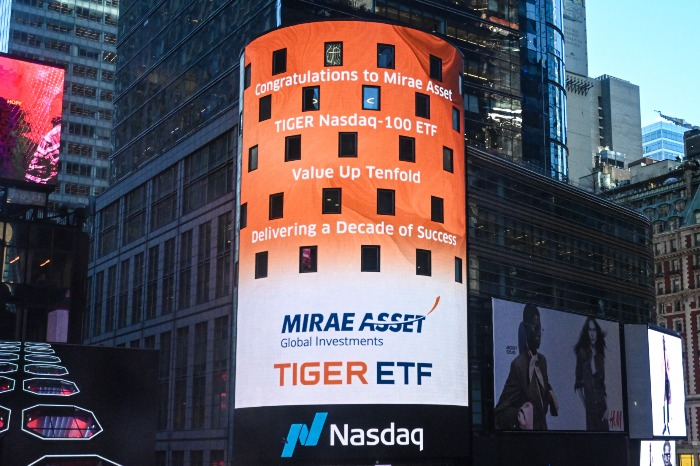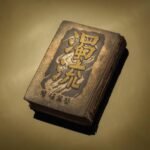
Exchange-traded funds (ETFs) are drawing a growing number of South Korean individual investors seeking a broader exposure to equities, accounting for half of trading volume on the Korea Exchange (KRX) in the first half of August.
With savers pulling cash from low-yielding bank deposits to avoid missing out on record-setting global stock markets, ETFs have emerged as a preferred tool for portfolio diversification and a key battleground for asset managers.
Their trading volume reached 53.68 trillion won ($38.6 billion) in the first 14 days of this month, equivalent to 10 trading sessions, according to the KRX.
That made up 48.6% of turnover on the Kospi over the same period, up from 34.5% in June and 42.3% in July. For 2024 as a whole, ETFs represented 32.4%.
The average daily trading volume for ETFs, which stood at 3.48 trillion won in 2024, has climbed sharply, rising to 5.25 trillion won in June and 5.48 trillion won in July.
“Record-setting global stock markets spark a surge in investor interest, but many face the challenge of picking individual stocks or sectors,” said Lee Jun-yong, vice chairman of Mirae Asset Global Investments.
“ETFs are gaining appeal for portfolio diversification into entire markets like the S&P 500 and the Kospi index, as well as specific industries like AI and defense.”
Since individual retirement pension funds are allowed to invest in ETFs in 2022, the domestic ETF market has seen rapid growth.

So far this month, ETFs dominated the list of most-traded securities on the Korea Exchange.
Leading the pack were the KODEX Leverage with a transaction volume of 5.67 trillion won and KODEX 200 with 4.51 trillion won, both tracking the domestic market.
The TIGER US S&P 500 and the SOL Shipbuilding TOP3 Plus also saw brisk trading, with volumes reaching 2.08 trillion won and 1.50 trillion won, respectively.
The number of Kospi-listed EFTs soared to 935 at the end of 2024, compared with 666 at the end of 2022.
South Korea, the world’s 11th-largest economy, now ranks fourth in terms of the number of ETFs, following the US (4,228), Canada (1,365) and China (1,196).
ANCHOR, FLAGSHIP PRODUCTS
Individual investors are raising their bets on domestic equities as President Lee Jae Myung pledged stock market-friendly policy measures aimed at driving the benchmark Kospi to 5,000 points, a level not seen in the history of the Korean stock market.
With more than one-quarter of South Korea’s 51 million population investing in stocks, domestic asset managers are in a flurry to roll out new ETFs across a divere range of countries and industries.
ETFs have become anchor products to attract retail money. They are also now flagship offerings for leading fund management companies such as KB Asset Management, Samsung Asset Management and Hanwha Asset Management.
Particularly, Hanwha Asset, a relative underdog in the industry, has emerged as a major ETF player with the launch of the PLUS K Defense, which tracks South Korea’s leading defense companies. Defense is one of Hanwha Group’s core businesses.

GLOBAL EXPANSION
ETFs also can serve as a springboard for Korean asset managers’ global expansion. By listing them in markets like New York and Hong Kong, they are able to market them directly to overseas retail investors.
“ETFs are positioning themselves as a channel for overseas expansion,” said a Seoul-based asset manager. “This trend will further heat up competition among domestic asset managers to launch attractive ETFs.”
By Han-Shin Park, Su-Ji Na and Ji-Yoon Yang
phs@hankyung.com
Yeonhee Kim edited this article.














